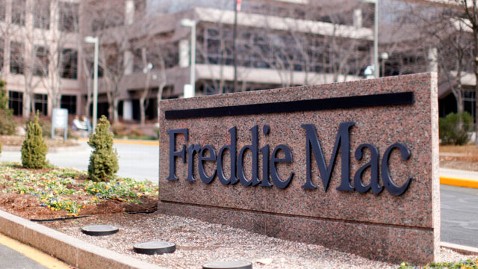Is Freddie Mac Betting Against Homeowners?

(Image credit: Andrew Harrer/Bloomberg via Getty Images)
Is Freddie Mac trying to help homeowners-or hurt them?
A recent investigation into trades made by the taxpayer-owned mortgage giant shows that while Freddie with one hand is helping consumers get mortgages, it is, with its other, making those mortgages harder to refinance. Result: Homeowners trying to refinance their way out of high-interest mortgages say they feel trapped in "financial jail."
The investigation-a joint effort between National Public Radio and ProPublica, an independent, non-profit investigative news service-looked at multibillion-dollar investments made late in 2010 by Freddie. These investments pay off only if homeowners remain locked in high-interest mortgages.
Not only do the investments appear to be at odds with Freddie's public mandate, they increase the size of Freddie's investment portfolio at a time when the Freddie, under the terms of a 2008 bailout agreement, is supposed to be reducing it. Both Freddie Mac and Fannie Mae were bailed out by U.S. taxpayers in 2008 and are now owned by the public.
The NPR-ProPublica report finds, too, that Freddie's new investments have increased the volatility of its portfolio.
Securities owned by Freddie fall into two categories. In one are those backed mainly by principal. These pay a low return but are considered low-risk. The second category holds securities backed by mortgage interest payments only. These pay a higher rate but are considered riskier, since, if homeowner defaults, Freddie as the insurer must pay the entire value of the mortgage. Known as inverse floaters, these investments are harder for Freddie to offload onto investors.
In 2010 and 2011, Freddie increased its holdings of inverse floaters by $3.4 billion, according to prospectuses for those deals. Interest rates on the underlying mortgages run as high as 7 percent.
In the same way that it's not in Freddie's interest to have borrowers default on those mortgages, it's not in its interest to have them switch to cheaper mortgages, since, when a borrower refinances, he pays off the first loan early, and those juicy interest payments stop.
Freddie thus has taken steps to make it harder for homeowners to refinance.
For example, in October 2010 it began refusing to insure new loans for homeowners who have had a short sale in the past two to four years. (In a short sales, a house is sold for less than the value of the underlying mortgage.)
That rule change has hit people like Jay and Bonnie Silverstein of Pennsylvania hard. Because the Silversteins did a short sale of their old home, Freddie now will not help them refinance their new one, even though the Silversteins say they haven't missed a payment. Says Jay Silverstein, who speaks for millions of consumers in his same situation, "We're in financial jail. We've never been there before."